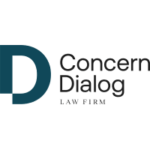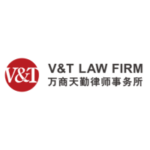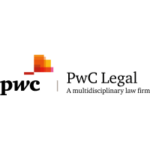-
What are the main methods of resolving disputes in your jurisdiction?
The primary methods of dispute resolution in Bangladesh are litigation, arbitration and mediation.
-
What are the main procedural rules governing litigation in your jurisdiction?
The civil proceedings are regulated under the Code of Civil Procedure, 1908 and criminal proceedings are regulated under Code of Criminal Procedure, 1898 unless otherwise specified by an Act of Parliament. The expression ‘civil proceeding’ covers all proceedings in which a party asserts civil rights conferred by a civil law. The Evidence Act, 1872 is instrumental in both civil and criminal proceedings which outlines procedure of receiving, admitting and dealing with evidence in trials.
Both High Court Division and Appellate Division of the Supreme Court of Bangladesh have their own rules governing its procedure namely Supreme Court of Bangladesh (High Court Division) Rules, 1973 and Supreme Court of Bangladesh (Appellate Division) Rules, 1988. Notably, these rules are supplemental to the above mentioned procedural codes and Evidence Act.
There are some laws which are both substantive and procedural, i.e. State Acquisition and Tenancy Act, 1950, Limitation Act, 1908. State Acquisition and Tenancy Act, 1950 creates some rights on state acquisition and at the same time, outlines ways to acquire these rights. Limitation Act, 1908 outlines procedure of counting limitation and simultaneously, creates some rights on prescription.
-
What is the structure and organisation of local courts dealing with claims in your jurisdiction? What is the final court of appeal?
The 200-years British rule in Indian Sub-Continent played a momentous role in shaping the legal system of Bangladesh. The Supreme Court of Bangladesh is at the top of the general hierarchy (for both civil and criminal courts) and comprises of the Appellate Division and High Court Division (Article 94(1) of the Constitution). Article 114 of the Constitution provides that there shall be such courts subordinate to the Supreme Court as may be established by law. The Civil Courts Act, 1887 provides for subordinate civil courts while the Code of Criminal Procedure, 1898 makes provision for the courts of magistrates and session judges. Parliament may by law establish additional courts, but Article 114 of Constitution operates as a limitation on the plenary legislative power of Parliament in respect of establishment of new courts. Because of Article 114, Parliament cannot create a court which is not subordinate to the High Court Division, nor can amend the existing laws so as to make the existing courts independent of the Supreme Court (Shahar Ali vs. A.R. Chowdhury, (1980) 32 DLR 142). The court system is also facilitated by tribunals which have their own structure as established under their respective statutes.
Appellate Division: The source of jurisdiction of Appellate Division stems from the Constitution and general laws. The general laws provide for only appellate jurisdiction (Article 103(4) of the Constitution) and as such, Appellate Division has no such original jurisdiction. The jurisdiction of Appellate Division is limited to appellate jurisdiction (Article 103 of the Constitution), jurisdiction as to issue and execution of process (Article 104 of the Constitution), jurisdiction as to review (Article 105 of the Constitution) and advisory jurisdiction (Article 106 of the Constitution).
High Court Division: The High Court Division, alike the Appellate Division, has two sources of jurisdiction, namely the Constitution and ordinary law. The constitutional jurisdiction of High Court Division includes writ jurisdiction (Article 102 of the Constitution), jurisdiction as to superintendence and control over courts (Article 109 of the Constitution), jurisdiction as to transfer of cases (Article 110 of the Constitution). Notably, writ jurisdiction means the power and jurisdiction of the High Court Division under the provisions of the Constitution whereby it can enforce the fundamental rights as guaranteed in part III of the Constitution and can also exercise its power of judicial review against any administrative action where no equally efficacious alternative remedy is available. The ordinary jurisdiction of the High Court Division includes original jurisdiction, appellate jurisdiction, revisional jurisdiction, reference jurisdiction. Original jurisdiction means the court of first instance for filing a suit such as admiralty suit as per Section 3 of Admiralty Court Act, 2000 (Global Traders vs. MV Guijiang VI & Others, (2005) 57 DLR 89), company matters and Christian Divorce matters. Appellate, reference or revisional jurisdiction may be conferred upon High Court Division by law, i.e. Section 115 of the Code of Civil Procedure, 1908 conferred on High Court Division revisional power.
Subordinate courts: Regarding civil courts, Section 3 of the Civil Courts Act, 1887 (as amended in 2001) provides for five classes of courts namely: i) The Court of District Judge, ii) The Court of Additional District judge, iii) The Court of the Joint District Judge, iv) The Court of the Senior Assistant Judge, v) The Court of the Assistant Judge. The sequence stated above signifies the hierarchy of the same. These courts have jurisdiction assigned to it by the Civil Courts Act or any other law which may be territorial (Section 13 of the Civil Courts Act, 1887), pecuniary, original jurisdiction, appellate jurisdiction (Section 20-21 of the Civil Courts Act, 1887) or transferred jurisdiction (Section 22 and 24 of the Code of Civil Procedure, 1908). District judge or Additional District judge does not generally try original suits but if any law requires, then they shall have original jurisdiction, e.g. Section 96 of the Trade Marks Act, 2009, section 12 of the Arbitration Act, 2001.
-
How long does it typically take from commencing proceedings to get to trial in your jurisdiction?
As per Oder V Rule 10 of the Code of Civil Procedure, 1908, when a suit has been duly instituted, a summon shall be issued by the officer of the Court within 5 working days from the date of filing of the suit. This summons requires the defendant to appear and respond to the claim on a specified date. Under Order VIII Rule 1 of the Code, the defendant is required to file a written statement within 30 working days from the date of receiving the summons, with a possible extension of an additional 30 working days. Upon submission of the written statement, the trial in a civil suit begins. Ideally, the trial process should commence within 2 to 3 months of initiating proceedings. However, in practice, trials begin after at least 6 months. This delay is often due to various factors such as the filing and resolution of interim applications by either party, delays in issuing summons, and adjournments requested by the parties.
-
Are hearings held in public and are documents filed at court available to the public in your jurisdiction? Are there any exceptions?
Generally, the hearings of the court are held in public in Bangladesh. However, if the need arises to hold such proceedings in camera, courts may facilitate it. For instance, as per section 54(3) of The Children Act, 2013, considering the best interest of the child in contact with the law, the courts are required to maintain confidentiality regarding all information about the child. In an effort to do so, any trial involving a child is to be conducted privately, in a camera trial session.
-
What, if any, are the relevant limitation periods in your jurisdiction?
Limitation periods are generally governed by the Limitation Act, 1908 effective from 07 August, 1908. The Act contains provisions of limitation for various types of cases such as limitation period for instituting civil suits, appeals and applications in the court. The main principle and object of this law is that if any suit is not filed within the period prescribed for its institution, the suit shall be dismissed at the expiry of such period.
There are certain cases where application for extension of limitation period can be made under Section 5 of the Limitation Act, 1908 and those cases are: (i) appeal; (ii) application for review; (iii) application for revision; (iv) application for leave to appeal; (v) application under any law where Section 5 of Limitation Act has been made applicable. The court at its own discretion can grant condonation of delay under Section 5 of the Act.
The general rule of interpretation of law is that special law shall prevail over general law. The Limitation Act is a general law concerning limitation period. So, if there is any special provision for limitation in any special law, then such special law must prevail. For example, the Special Powers Act, 1974 and Money Loan Court Act, 2003 are special laws and they provide for limitation period and as such, the provision of Limitation Act shall not be applicable. Moreover, Section 29(2) of the Limitation Act specifies that where there are provisions of limitation period in any special law which are different from the period prescribed in the First Schedule of the Act, then Section 3 of the Act will be applicable in such manner as if such different period were prescribed in the Schedule.
-
What, if any, are the pre-action conduct requirements in your jurisdiction and what, if any, are the consequences of non-compliance?
There is no such codified pre-action protocol or similar rules applicable in respect of commencement of litigation in Bangladesh in general. Depending on the nature of the case, there might be some prior steps which ought to be taken in certain cases before commencing litigation in the Court, i.e. service of demand notice by registered post under Section 242 of Companies Act, 1994 at least 21 days’ before filing of winding up application in High Court on ground of inability of company to pay its debts (Section 241(v) of Companies Act, 1994). If a party fails to send the demand notice in accordance with Section 242 of Companies Act, 1994, then the winding up application shall not be maintainable in the High Court Division because of failure to send the said notice. In respect of bankruptcy proceedings, it is necessary to serve a formal demand under Section 9(1)(i) of Bankruptcy Act, 1997 to the debtor (having a valid and matured debt to one or more creditor for an amount of not less than Tk. 5,00,000/) and if the debtor fails to entertain the same within 90 days accordingly, then the same shall qualify as an act of bankruptcy for the purpose of commencing bankruptcy proceedings in the Court. Issuance of proceedings in the Court without serving formal demand will necessarily be a procedural lap which will render the proceeding not maintainable. In case of filing cases before Money Loan Court, any property mortgaged under the loan ought to be put in auction under section 12 of the Money Loan Court Act, 2003.
-
How are proceedings commenced in your jurisdiction? Is service necessary and, if so, is this done by the court (or its agent) or by the parties?
It is primarily imperative to ascertain as to whether there is any alternative remedy or condition precedent which is to be in compliance before commencement of litigation. Thereafter, it is to be determined as to which court has the jurisdiction to entertain the matter and for such determination, subject matter of the claim, the value of the claim and place of accrual cause of action will be of pivotal importance. Stating from the usual practice, the prospective plaintiff issues a legal notice stipulating all the details as to introduction of prospective plaintiff, relevant facts, disputed issue, demands along with the intention of commencing litigation if the demand is not met within the prescribed time period. If the court is prima facie satisfied regarding the maintainability of the suit, it will issue notice or summons to the opposite party.
In accordance with Section 26 of the Code of Civil Procedure, 1908, every suit shall be instituted by the presentation of a plaint or in such other manner as may be prescribed. Once a plaint is taken to the court, the court officer shall examine as to whether the relief claimed has been properly valued and the court fees has been duly paid etc. After being reasonably satisfied, the court officer puts a serial number of the suit and will enter the suit into a Register called the Register of Suits. The date of filing shall also be stamped on the plaint as soon as it is filed. The machinery of a court is set in motion by the presentation of a plaint, which is the first stage in a civil suit.
Once commenced, an officer of the court is required to issue summons to the defendants at the address provided by the plaintiff, which contains the following: i) details of the Suit in which the summons have been issued; ii) seal of the court and the judge’s signature; iii) the date of appearance specified; and iv) copy of the plaint.
-
How does the court determine whether it has jurisdiction over a claim in your jurisdiction?
The courts of Bangladesh possess jurisdiction over matters to the extent as granted to it by the Constitution of Bangladesh or other applicable laws. With regard to civil courts, the jurisdiction related provisions are set out in Code of Civil Procedure, 1908 and the Civil Courts Act, 1887. The jurisdiction of a respective courts is usually determined on the basis of subject matter, value of the dispute and the place where the cause of action accrues in full or in part. There are two types of jurisdiction, i.e. territorial jurisdiction (Section 13 of The Civil Courts Act, 1887) and pecuniary jurisdiction.
With regard to territorial jurisdiction, it will depend on defendant’s place of residence or location of subject matter of the dispute or place of accrual of relevant cause of action. The Government may, by notification in the official gazette, fix and alter the local limits of the jurisdiction of any civil courts under the Civil Courts Act, 1887. If the same local jurisdiction is assigned to two or more joint District Judges or Senior Assistant Judges or Assistant judges, then the District Judge may assign to each of them such civil business cognizable by the Joint District Judge or Senior Assistant Judge or Assistant Judge, as the case may be and subject to any general or special orders of the High Court Division of Supreme Court of Bangladesh.
Regarding pecuniary jurisdiction, the pecuniary jurisdiction of the Assistant Judge is BDT 1.5 Million and the Senior Assistant Judge is BDT 2.5 Million (as per Section 19 of The Civil Courts Act, 1887). When the value of the claim is beyond BDT 2.5 Million, then it must be filed in the Joint District Judge’s Court. The pecuniary jurisdiction of the Joint District Judge is unlimited. Subject to some applicable laws, no suit is filed in the Court of District Judge or Additional District Judge as a court of original jurisdiction.
There are also several statutes which stipulates the name specific court or tribunal which has jurisdiction to hear the matter. For example, Section 4 of The Family Courts Ordinance, 1985 provides for establishment of family courts to entertain, try and dispose of any suit (subject to provisions of the Muslim Family Laws Ordinance, 1961) relating to or arising out of all or any of the matters relating to dissolution of marriage, restitution of conjugal rights, dower, maintenance, guardianship
-
How does the court determine which law governs the claims in your jurisdiction?
To determine the applicable law for a claim, courts take into account several factors, including: (a) jurisdiction and governing law clauses specified in the contract; (b) the nature of the cause of action underlying the suit; and (c) the type of contract involved—for example, whether the dispute is subject to arbitration.
In matters involving foreign elements, courts may also rely on the principles of private international law to identify the appropriate governing law.
-
In what circumstances, if any, can claims be disposed of without a full trial in your jurisdiction?
Claims can be disposed of without a full trial under several specific circumstances as outlined in the Code of Civil Procedure, 1908. Under Order XII Rule 6, a court may pass a judgment based on admissions made by the parties either in the pleadings or otherwise; under Order XV, a suit may be disposed of at the first hearing if the defendant does not raise any issues that require a trial; Order XXXVII allows the Court to dispose of a case related to debt or liquidated demand arising out of a written contract, bill of exchange, or promissory note.
-
What, if any, are the main types of interim remedies available in your jurisdiction?
Yes, Order XXXIX of the Code of Civil Procedure, 1908 allows the scope of interim remedies in Bangladesh. The right to obtain interim remedy is ancillary to the right to file a suit which can be obtained on showing of prima facie case, irreparable loss and balance of convenience (Deputy Secretary, Ministry of Commerce vs. Nizamuddin Haider, 37 DLR 102). Consideration for ascertaining whether there is an implied grant of power to issue interim relief are: (i) need to preserve status quo with respect to the subject matter of the dispute, and (ii) need to preserve the parties themselves. Both the plaintiff and defendant may make application for interim remedy. Interim remedies include but not limited to ad interim injunctions, attachment before judgment, interim sale of movable properties, orders for detention or inspection of property, the stay of an application of any order, status quo. The civil courts have plethora of interim relief to protect the interest of parties, including attachment before judgment, security for costs, Anton pillar order, Mareva injunction.
-
After a claim has been commenced, what written documents must (or can) the parties submit in your jurisdiction? What is the usual timetable?
Upon commencement of a suit by a plaint, the defendant is required to file a written statement controverting the claims made by the plaintiff in its plaint within 30 working days from the date of receiving the summons, with a possible extension of an additional 30 working days. Apart from or in addition to the written statement, the defendant may file an application under Order VII Rule 11 for preliminary rejection of the plaint relying on certain grounds – i) no cause of action, ii) the suit is undervalued, iii) insufficient stamping or iv) barred by law. During the trial, all documents relied upon or referenced by the parties must be placed on record to meet disclosure requirements.
-
What, if any, are the rules for disclosure of documents in your jurisdiction? Are there any exceptions (e.g. on grounds of privilege, confidentiality or public interest)?
The relevant primary principle is that pleading, i.e. plaint or written statement, should state the material facts with sufficient brevity and precision so that the other party may know what case he has to meet and he cannot be kept guessing what his opponent wanted to convey by a vague pleading (Bangladesh vs. Abdul Jabbar Sheikh, 2007 BLD (AD) 29).
In support of such stated facts, all the requisite documents must be filed along with the pleading itself. Section 30 of the Code of Civil Procedure, 1908 enables the court, amongst others, to the delivery and answering of interrogatories and to make an order for discovery which is necessary or reasonable in the absence of an application by either party (Abul Kalam vs. Fazlul Huq, 1998 BLD 442).
-
How is witness evidence dealt with in your jurisdiction (and in particular, do witnesses give oral and/or written evidence and what, if any, are the rules on cross-examination)? Are depositions permitted?
Recently, on 8th May, 2025, several amendments have been brought to the Code of Civil Procedure, 1908 by promulgation of the Code of Civil Procedure (Amendment) Ordinance, 2025. By the said Ordinance, amendments have been brought to the rules governing witness evidence. Previously, it was practice in trial that the plaintiff or the defendants would orally state or deny facts written in the plaint or written statement, as the case may be. The Ordinance, has clarified that no such oral statement would be required. Further, the Ordinance has added a new rule to the Code that in every case, the examination-in-chief of the plaintiff or the defendant, as the case may be, shall be on affidavit and he may then be cross-examined and, if necessary, re-examined.
-
Is expert evidence permitted in your jurisdiction? If so, how is it dealt with (and in particular, are experts appointed by the court or the parties, and what duties do they owe)?
Section 45 of The Evidence Act 1872 deals with expert evidence and allows for production of an expert in order to lend a hand to the Judge to form an opinion on a point of foreign law, or science or identity of handwriting or finger impressions. Section 45 is an exception to the general rule regarding exclusion of opinion evidence. This section is exhaustive on the matters on which expert evidence can be availed. However, point to be noted is that the expression science or art would include almost all branches of human knowledge requiring dedicated study of those topics, experience or training. Application of modern technology in light of the developing modern world science in order to determine and detect truth under section 45 is also required to be considered by the court (Noor Alam v Sonali Bank 17 BLC 764).
While preparing and presenting expert evidence, it should be borne in mind that Section 45 of the Evidence Act does not compel the court to act upon the opinion of the expert. Hence, such expert opinion is not binding on the court being substantive piece of evidence, rather only persuasive in nature to aid the court to reach a satisfactory conclusion. An expert must provide reasons in support of his opinion. While evidence from an expert is subject to consideration like any other evidence, such evidence is required to be treated with great caution (Sheikh Salim Uddin v Ataur Rahman, 43 DLR 18 : 11 BDL 336). It should also be borne in mind that expert evidence can be secured only through the order of the Court and not voluntarily by the party to the suit.
With regards to presentation of expert evidence, it should be borne in mind that an expert has to state his opinion in court and must be examined and cross examined similar to other witnesses (Balkrishna Das v Rada Debi, AIR 1989 All. 133). Hence, merely a report, certificate or letter of an expert would not be enough, unless the author has not been produced in the court to prove it.
-
Can final and interim decisions be appealed in your jurisdiction? If so, to which court(s) and within what timescale?
Under the Code of Civil Procedure, 1908, appeals may be filed against a final decree or certain specified orders, unless expressly barred by statute. As a general principle, the Code allows for up to three rounds of appellate proceedings.
The first appeal lies to the designated appellate court from any decree (including an ex parte decree) passed by a court exercising original jurisdiction, unless specifically excluded—such as in the case of a consent decree. All questions of fact and law may be raised in the first appeal.
A second appeal typically lies to the High Court Division with appropriate territorial jurisdiction, from a decree passed in the first appeal by a subordinate court. However, a second appeal is permitted only on substantial questions of law arising in the case.
A further appeal may be filed before the Appellate Division of the Supreme Court of Bangladesh by seeking special leave to appeal. The Appellate Division has broad discretion in deciding whether to grant leave in such appeals, which are generally considered only if they involve substantial questions of law of general public importance.
Certain special statutes also provide for a direct appeal to the High Court Division from decisions of appellate bodies constituted under those statutes.
Unlike final judgments or decrees, interim orders are generally not appealable unless a specific statute allows for it. In such cases, alternative remedies such as revision, recall, or modification of the order may be sought before the same court. Additionally, where no direct appeal is available against interim orders, litigants may invoke the extraordinary jurisdiction of the High Court Division under Article 102 of the Constitution of People’s Republic of Bangladesh.
The timeframe for filing an appeal is governed by the Limitation Act, 1908 or the relevant statute, and typically ranges from 30 to 90 days from the date of receipt of the order or decree being impugned.
-
What are the rules governing enforcement of foreign judgments in your jurisdiction?
The Code of Civil Procedure, 1908 governs the recognition and enforcement of foreign judgments in Bangladesh. It is to be noted that, a judgment of a foreign country cannot be enforced in Bangladesh in the absence of any reciprocating Agreement. Reciprocity Territory refers to a country or territory as the Government may, from time to time, by notification in the Official Gazette, declare to be reciprocating territory for the purposes of this section. For a judgment passed by a Court in a non-reciprocating territory, the judgement can be considered a “public document” evidence pursuant to Section 74 of the Evidence Act 1872. A foreign judgment may be enforced by filing a fresh suit using the foreign judgment as evidence of debt and in such a situation, the court will dispose of the suit in a summary proceeding.
For making a foreign judgment conclusive in Bangladesh, it must be shown that it complies with the six conditions stipulated under section 13 of the Code.
Having established enforceability, the foreign judgment could be enforced in the same way a decree passed by the local court could be executed (section 44A of the Code).
-
Can the costs of litigation (e.g. court costs, as well as the parties’ costs of instructing lawyers, experts and other professionals) be recovered from the other side in your jurisdiction?
Primarily, the parties bear their own costs to the litigation. However, the adjudicating courts have jurisdiction to award reasonable costs to the winning party with their judgment.
-
What, if any, are the collective redress (e.g. class action) mechanisms in your jurisdiction?
Class actions are permitted under the purview of Order I Rule VIII of the Code of Civil Procedure, 1908 which allows a person to sue or defend on behalf of others having the same interest in the respective suit. To attract the applicability of this provision, four conditions are to be fulfilled: (i) there should be numerous persons who, (ii) have the same interest, (iii) the court has given permission to sue or defend in representative capacity, and (iv) the court has given notice to the persons interested. Pertinently, a suit in personal capacity binds the plaintiff only, whereas a suit in representative character under the aforementioned Order I Rule VIII binds all who have the same interest. For the purpose of the above proviso, ‘numerous’ does not mean innumerable; it means a group of persons inconvenient to implead individually. ‘Same interest’ means a common interest and a grievance of the persons on whose behalf the suit is instituted. For the validity of a representative suit, permission of the court is necessary, which should be given when the suit is filed, but it may also be granted afterwards. Regarding the necessity of service of notice, it is absolutely necessary for the notice to be served upon all the parties who would be bound by the decree as otherwise a person may be prejudicially affected by such decree even though he was not on record. Compliance with Order I Rule VIII is mandatory in respect of a representative suit and non-compliance will render the respective suit not maintainable
-
What, if any, are the mechanisms for joining third parties to ongoing proceedings and/or consolidating two sets of proceedings in your jurisdiction?
The courts are empowered to strike out the name of a party that has been improperly joined or to add a party which ought to have been joined in the proceedings. However, as per Order 1 Rule 10 of the CPC, joinder of third parties shall be allowed if it is necessary for the determination of the real matter in dispute and whose presence before the court may be necessary in order to enable the court effectually and complete to adjudicate upon and settle all the questions involved in a suit. Such an order for joinder of third parties may be passed either upon or without the application of either party in the proceedings
-
Are third parties allowed to fund litigation in your jurisdiction? If so, are there any restrictions on this and can third party funders be made liable for the costs incurred by the other side?
Funding of litigation by third parties is a grey area of law in Bangladesh. We do not find any specific restriction on funding by third parties in litigation in Bangladesh.
-
What has been the impact of the COVID-19 pandemic on litigation in your jurisdiction?
The onset of the COVID-19 pandemic initially brought litigation to a standstill due to nationwide lockdowns. However, the disruption quickly became a turning point, accelerating the integration of technology into the justice system. Courts rapidly transitioned to online platforms, enabling the resumption of legal proceedings and ensuring continued access to justice despite physical restrictions.
This shift acted as a catalyst for digital transformation within the judiciary. Both the government and the courts embraced technological tools, laying the foundation for a more accessible, efficient, and citizen-centric legal system. The adoption of virtual courtrooms has significantly enhanced the reach of justice delivery, making legal processes more affordable and user-friendly.
Furthermore, the integration of technology has extended beyond traditional litigation to include alternative dispute resolution (ADR) methods. Innovative approaches such as e-mediation, e-arbitration, e-negotiation, Med-Arb are increasingly being explored, as part of a broader effort to modernize and streamline dispute resolution.
-
What is the main advantage and the main disadvantage of litigating international commercial disputes in your jurisdiction?
Bangladesh offers a cost-effective forum for litigation compared to many other civil law jurisdictions. The court system is well-structured and provides a degree of procedural flexibility for litigants. With the country’s rapidly growing economy, the judiciary has also become increasingly adept at handling complex, high-value international commercial disputes.
Despite these advantages, one of the most significant drawbacks remains the excessive length of legal proceedings. To overcome this challenge, disputing parties have increasingly turned to alternative methods of dispute resolution, such as negotiation, mediation, and arbitration. Based on our extensive experience handling high-value civil and commercial arbitrations, we have observed a growing preference for arbitration, as it offers a more efficient and cost-effective means of resolving disputes.
-
What is the most likely growth area for commercial disputes in your jurisdiction for the next 5 years?
Alternative dispute resolution mechanisms to litigation, such as arbitration and mediation, are likely to remain growth areas for dispute resolution in the next 5 years. Parties to commercial contracts are increasingly inclining towards arbitration as dispute resolution mechanism.
Moreover, the increase in foreign investment—fueled by Bangladesh’s emergence as a global investment destination—is likely to prompt significant legal reforms. These may include efforts to streamline dispute resolution mechanisms to better support and facilitate foreign investments.
-
What, if any, will be the impact of technology on commercial litigation in your jurisdiction in the next 5 years?
Over the next five years, technology is expected to play a transformative role in shaping the future of commercial litigation in Bangladesh. Driven in part by the acceleration brought on by the COVID-19 pandemic, courts have begun adopting digital solutions such as e-filing of pleadings (currently available for cases before the Company Bench of the High Court Division), virtual hearings via video conferencing, and even live streaming of proceedings to enhance public access.
These advancements are ushering in a new era of tech-enabled litigation, promising greater efficiency, reduced costs, and a more streamlined dispute resolution process. Legal innovation and the integration of technology are also helping to alleviate the long-standing issue of overburdened courts.
Prominent members of the judiciary have acknowledged the potential of these technological tools to make dispute resolution faster and more cost-effective. However, despite the momentum, challenges remain—particularly for ordinary litigants who often face financial and infrastructural hurdles in accessing digital platforms.
To truly harness the benefits of legal technology, the focus must now shift toward decentralizing its use, ensuring that digital access to justice is not confined to a privileged few. By bridging this digital divide, Bangladesh has the opportunity to revolutionize its justice system and make it more inclusive, accessible, and future-ready.
Bangladesh: Litigation
This country-specific Q&A provides an overview of Litigation laws and regulations applicable in Bangladesh.
-
What are the main methods of resolving disputes in your jurisdiction?
-
What are the main procedural rules governing litigation in your jurisdiction?
-
What is the structure and organisation of local courts dealing with claims in your jurisdiction? What is the final court of appeal?
-
How long does it typically take from commencing proceedings to get to trial in your jurisdiction?
-
Are hearings held in public and are documents filed at court available to the public in your jurisdiction? Are there any exceptions?
-
What, if any, are the relevant limitation periods in your jurisdiction?
-
What, if any, are the pre-action conduct requirements in your jurisdiction and what, if any, are the consequences of non-compliance?
-
How are proceedings commenced in your jurisdiction? Is service necessary and, if so, is this done by the court (or its agent) or by the parties?
-
How does the court determine whether it has jurisdiction over a claim in your jurisdiction?
-
How does the court determine which law governs the claims in your jurisdiction?
-
In what circumstances, if any, can claims be disposed of without a full trial in your jurisdiction?
-
What, if any, are the main types of interim remedies available in your jurisdiction?
-
After a claim has been commenced, what written documents must (or can) the parties submit in your jurisdiction? What is the usual timetable?
-
What, if any, are the rules for disclosure of documents in your jurisdiction? Are there any exceptions (e.g. on grounds of privilege, confidentiality or public interest)?
-
How is witness evidence dealt with in your jurisdiction (and in particular, do witnesses give oral and/or written evidence and what, if any, are the rules on cross-examination)? Are depositions permitted?
-
Is expert evidence permitted in your jurisdiction? If so, how is it dealt with (and in particular, are experts appointed by the court or the parties, and what duties do they owe)?
-
Can final and interim decisions be appealed in your jurisdiction? If so, to which court(s) and within what timescale?
-
What are the rules governing enforcement of foreign judgments in your jurisdiction?
-
Can the costs of litigation (e.g. court costs, as well as the parties’ costs of instructing lawyers, experts and other professionals) be recovered from the other side in your jurisdiction?
-
What, if any, are the collective redress (e.g. class action) mechanisms in your jurisdiction?
-
What, if any, are the mechanisms for joining third parties to ongoing proceedings and/or consolidating two sets of proceedings in your jurisdiction?
-
Are third parties allowed to fund litigation in your jurisdiction? If so, are there any restrictions on this and can third party funders be made liable for the costs incurred by the other side?
-
What has been the impact of the COVID-19 pandemic on litigation in your jurisdiction?
-
What is the main advantage and the main disadvantage of litigating international commercial disputes in your jurisdiction?
-
What is the most likely growth area for commercial disputes in your jurisdiction for the next 5 years?
-
What, if any, will be the impact of technology on commercial litigation in your jurisdiction in the next 5 years?




























